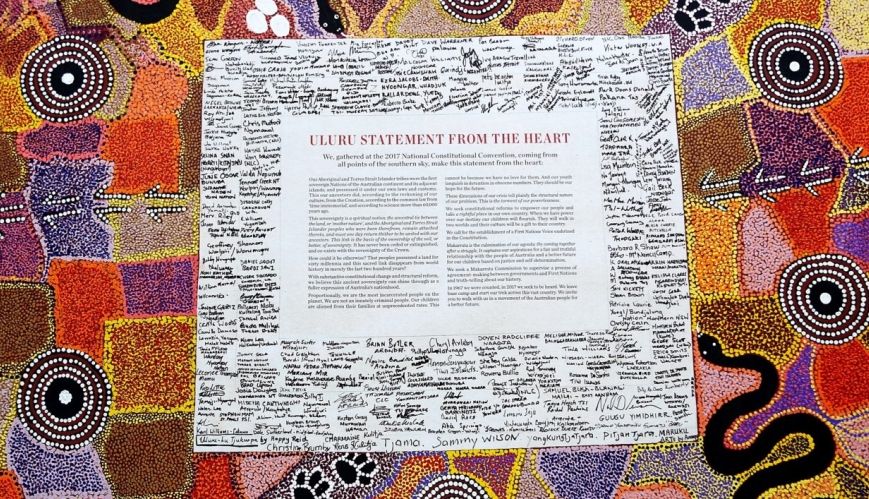'They should just get over it!' Really?

'They should just get over it!' Really?
26 January 2023
Hearing the cry of the Uluru Statement from The Heart will go a long way towards healing the hurts of the past and fostering reconciliation.
“It happened in the past. It wasn’t my doing. They should just get over it!”
This is a commonly heard rhetoric when the subject of Australia Day, the Uluru Statement from The Heart or even netball sponsorships comes up. Such statements express a rather breathtaking lack of a sense of history and the profound long-term impact of trauma.
So, if you have said or even thought of these phrases, I urge you today, on Australia Day, to think a bit more deeply. You see, I could also make all those statements about Gallipoli and the first Anzacs, and they’d be just as true – Gallipoli happened in the past, I was not present, I was not responsible, so should I just forget about it?
Most Australians don’t dismiss Anzac Day as a meaningless past event. Instead, we recite en masse, “We will remember them, lest we forget.” We say rightly that the Gallipoli campaign in 1915 helped to shape our national identity and forge our Australian character.
Most would agree that significant events in the past still impact us today, therefore, we remember them. We celebrate or mourn, or sometimes both, and we are right to do so. And yet, inexplicably, we refuse to acknowledge the significance of the great and grievous wounding of our First Peoples and its ongoing impact. How could we not see the parallel? I live and work where I do because, at some point, Aboriginal people were displaced and killed. You do too. And that displacement was brutal. We can’t just forget about it.
But if that historical view is too big a picture, we could imagine it more personally. If your mum was taken from her family, against her will, her identity reinvented without her permission or desire, if she ended up with psychological wounds that impacted her sense of self and of belonging, would you say to her, “It happened in the past. I don’t want to hear about it. Move on.” Or worse still, if your mum had been assaulted and her assailant lived next door, would you say, “Just get over it.” I don’t think you would.
“We will be a better Australia when we have done so”
How, then, should we frame this challenge of the impact of colonisation? In a debate on reparation for the descendants of slavery, British-American author Christopher Hitchens, using the taking of the Elgin marbles from Greece as an analogy, challenged his audience to ask three questions: “Was there a taking, a rape and a dispossession? Can it be made good? If not, can some of it be made good?”
They are three good questions, and we should ask them of ourselves. And I think we know the answers. There was a taking, a rape and a dispossession, and while we can never put 1787 Australia back together, we can certainly make partial reparation. We can do so through continued acknowledgement of Country and the celebration of our First People’s culture; through seeking reconciliation and through listening more and speaking less to our First People; through hearing the cry of the Uluru Statement from The Heart and to committing ourselves to enshrine a First Nations Voice in the Constitution.
We will be a better Australia when we have done so. I would love us to shake off the remnants of the empire and continue to create new ceremonies, new traditions, new understandings, and new ways of being that acknowledge our past, the good and bad. Doing so could forge an even richer, more honest, more compassionate identity as Australians. I too believe that ‘ancient sovereignty can shine through as a fuller expression of Australia’s nationhood’.
Every Anzac Day, I say, “We shall remember them, lest we forget”, and feel in some way connected to those who’ve gone before me to make my life possible. And when our First Nations Voice to Parliament meets for the very first time, I’ll think of the thousands and thousands of voiceless Aboriginal and Torres Strait Islanders who couldn’t have imagined themselves finding a meaningful place in Australia’s life and laws and remember those who’ve fought to make the voice a reality. And in honour of them, I’ll say again, “We shall remember them, lest we forget.”
Major Grant Sandercock-Brown is a lecturer at Eva Burrows College in Melbourne